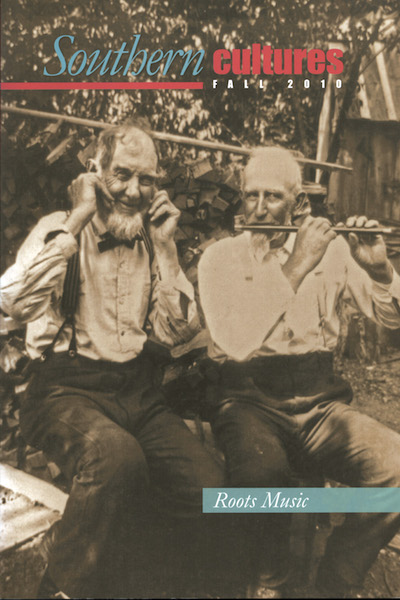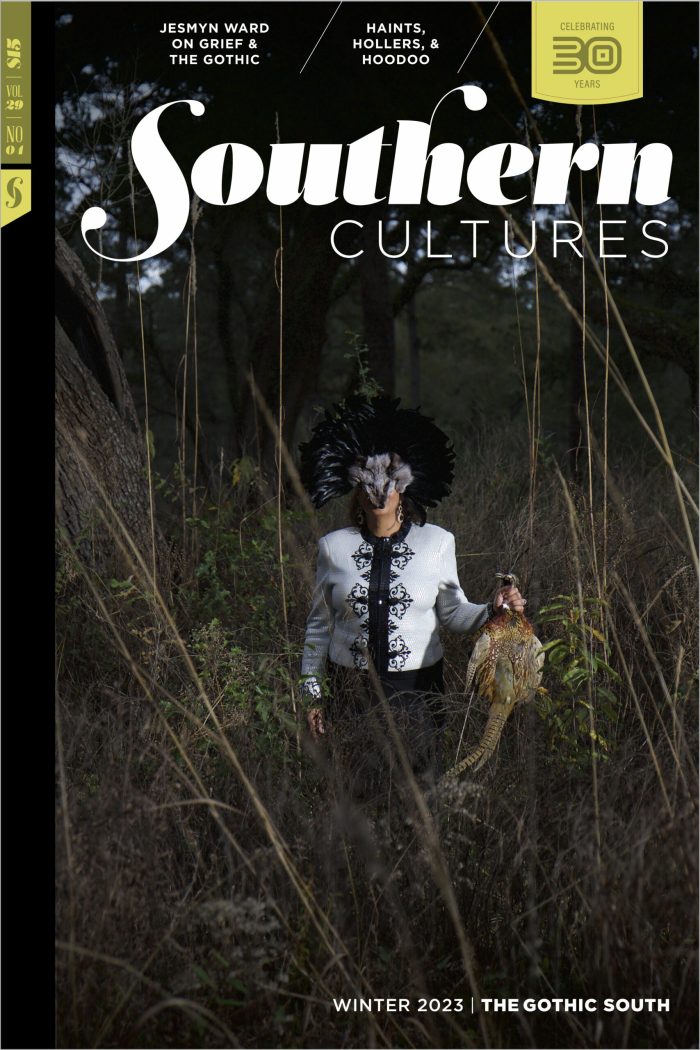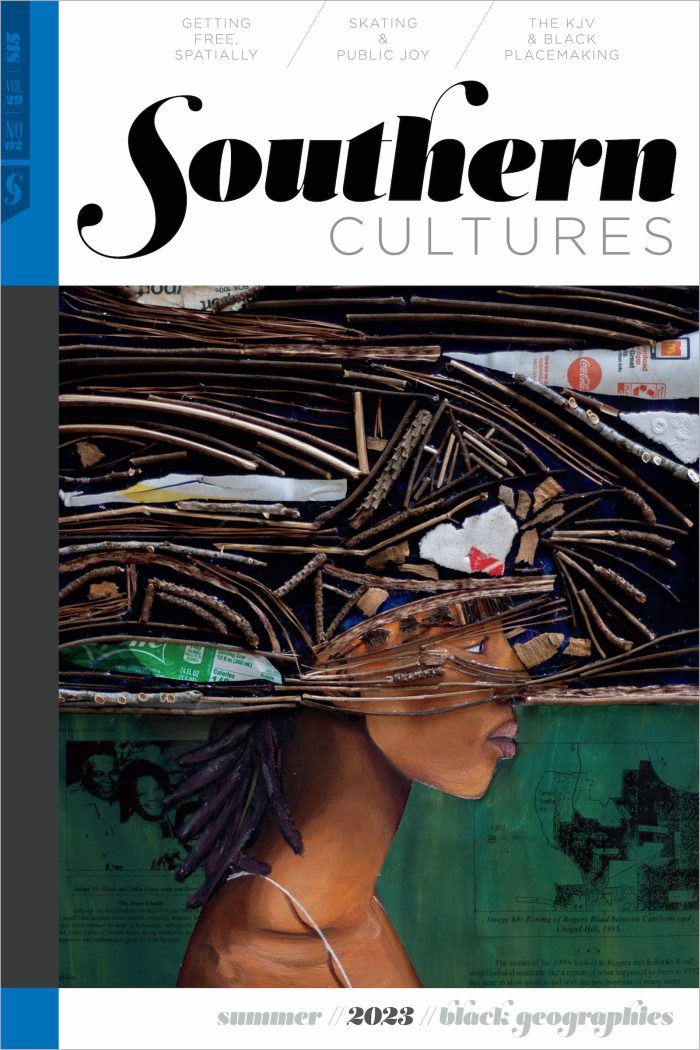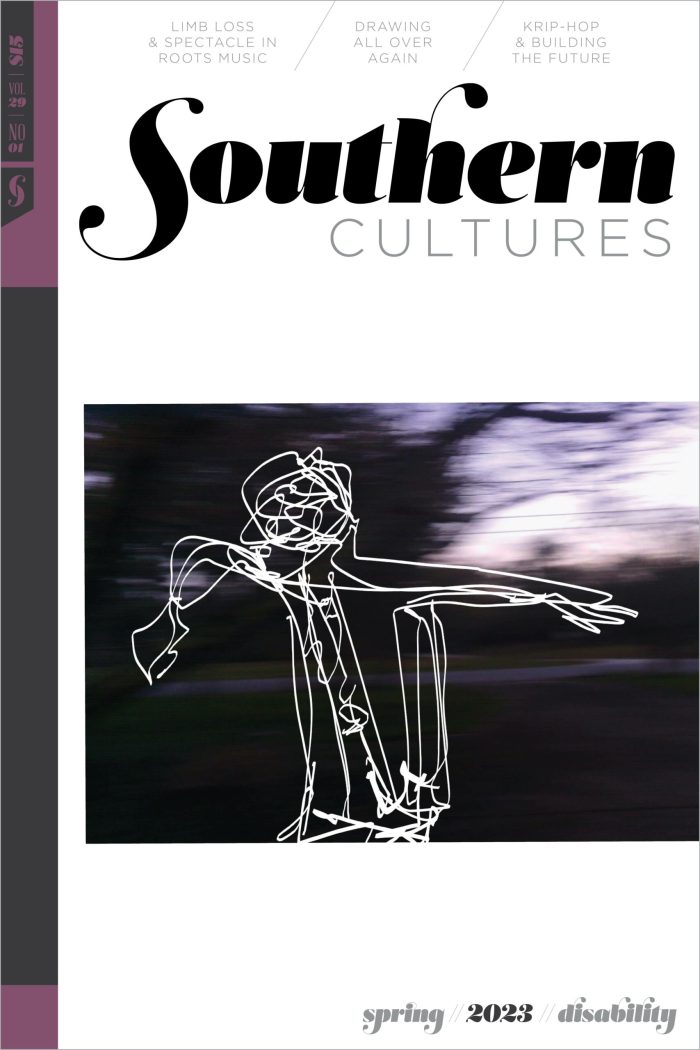BUY ACCESS
by Harry L. Watson
“For most of us, roots music is not something we absorbed with our first breaths, but something we looked for and seized on, hoping to fill a void that other music could not plumb.” This edition of Southern Cultures’s music issue deals with “roots” music, a label that grew especially well known and popular after »
BUY ACCESS
by Jocelyn R. Neal
from the forthcoming novel Nashville Chrome by Rick Bass The mid-1950s in popular music resembled the Wild West. New sounds, new styles, and new business models collided with a teenage audience that had unprecedented buying power. As those forces converged, popular music entered about a half-decade of uncharted territory where shady businessmen exploited ambitious but »
BUY ACCESS
by David W. Johnson
“There’s a gang that would travel if you get on a freight train and couldn’t get off. If I’d stayed on there I’d been getting killed.” A faint odor of bedpan greeted me as I entered the room in the rehabilitation unit of Beverly Hospital in Beverly, Massachusetts. In bed lay the stocky figure of »
BUY ACCESS
by Dick Waterman
“The backstage Dylan—dutifully practicing with harmonica and guitar—wouldn’t have predicted a portfolio that would include forty-five more albums.” Dylan has a backstage smoke in ’63. Mississippi John Hurt sits with guitar case in hand the year before his death. Pete Seeger listens to a young Phil Ochs in ’64. Reverend Gary Davis sleeps on his »
BUY ACCESS
by William R. Ferris
“Pete thumbed his way all over that triangle from Maryland to Florida to Texas. Whenever he saw someone carrying a banjo or guitar, he would cotton up to them. And if they knew anything he didn’t know, he’d just find out what it was, learn to do it, and then go on to the next.” »
BUY ACCESS
by Charles Joyner
“Frank Proffitt learned most of his repertoire of songs, hymns, ballads and banjo tunes from his family and sang them in a hickory-smoked baritone that flowed subtly and poignantly through his ballads like a quiet mountain stream.” Folk singers is an ambiguous term. To folklorists it means those whose repertoires have been passed down orally »
BUY ACCESS
by Michael C. Taylor
“The Oak Ridge Boys—you’ve heard of them—came into town, and they said, ‘Willie, we’d like for you to play.'” Willie Lowery has led a dual musical life (with, of course, much overlap) as both a southern musician and an Indian musician. As a southern musician coming of age in the 1950s and ’60s, Willie engaged »
BUY ACCESS
by Bartow J. Elmore
“In 1967, the Allman brothers headed to California, hoping to make it big in a band called Hour Glass. The band quickly became popular on the Los Angeles music circuit, playing at popular clubs like the Whiskey a Go Go and drawing the attention of rising rock stars like Neil Young and Janis Joplin.” It »
Poetry
by Cathy Smith Bowers
“. . .coupling on the dance floor, two women, alone, dancing with babies on their hips, wearing in and through, stitching up the random piece-goods of the night.” We had travelled to that old coast,six hours to New Bern, the long ferryfrom Cedar Island to Ocracoke and thento Roanoke where Manteo, for loveof the glittering »
BUY ACCESS
by Vincent Joos
“I learned how to sing from the radio. I didn’t care what kind of songs. I like music, period. Any kind, you know. Country-western or blues, I would jump on it.” Linton Avenue in downtown Natchez, Mississippi, is dotted with large Victorian homes, surrounded by luxuriant vegetation. In the early twentieth century it was home »
BUY ACCESS
by Terrence S. Tickle
“Admiral Davison recommended that Captain Gehres abandon ship. The captain refused, fearing that there were sailors still alive below decks. Dowell was one of those soldiers.” “Boob boop dittum dattum wattum, choo/And they swam and they swam all over the dam.” Today, many recognize these lines from “Three Little Fishies” in the “itty bitty pool,” »
by Aaron Smithers
Music Issue Companion CD Track List 1| “The Early Bird Always Gets the Worm” MICHAEL HURLEY 3:13 Face a Frowning World: An E. C. Ball Memorial Album, Tompkins Square, tompkinssquare.com, snockonews.net 2| “Walking Jaybird” ETTA BAKER 2:40 Banjo, Music Maker, musicmaker.org 3| “Birmingham Is My Home” BIRMINGHAM HERITAGE BAND 7:32 Composer Amos Gordon, arranger Sammy Love, band »





